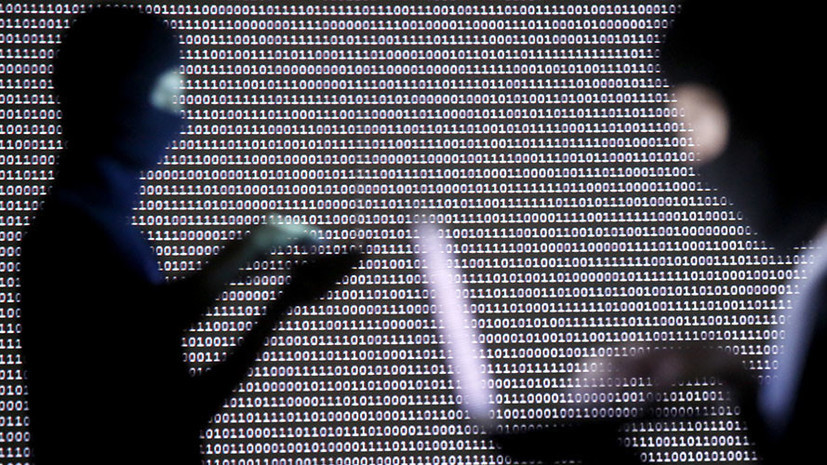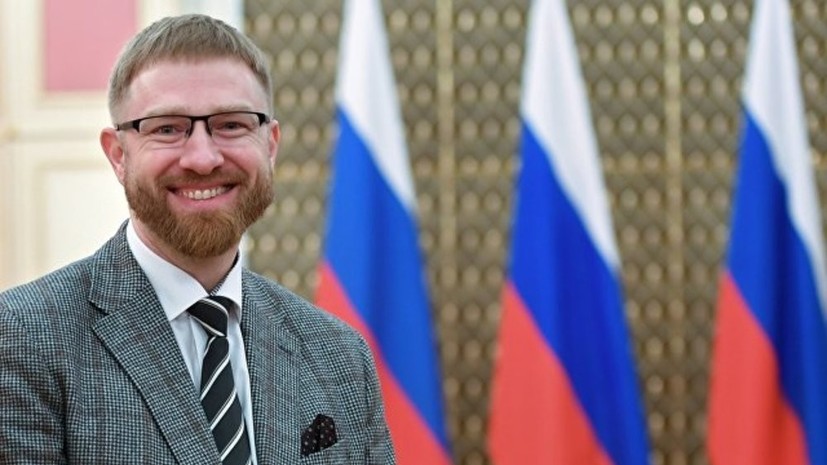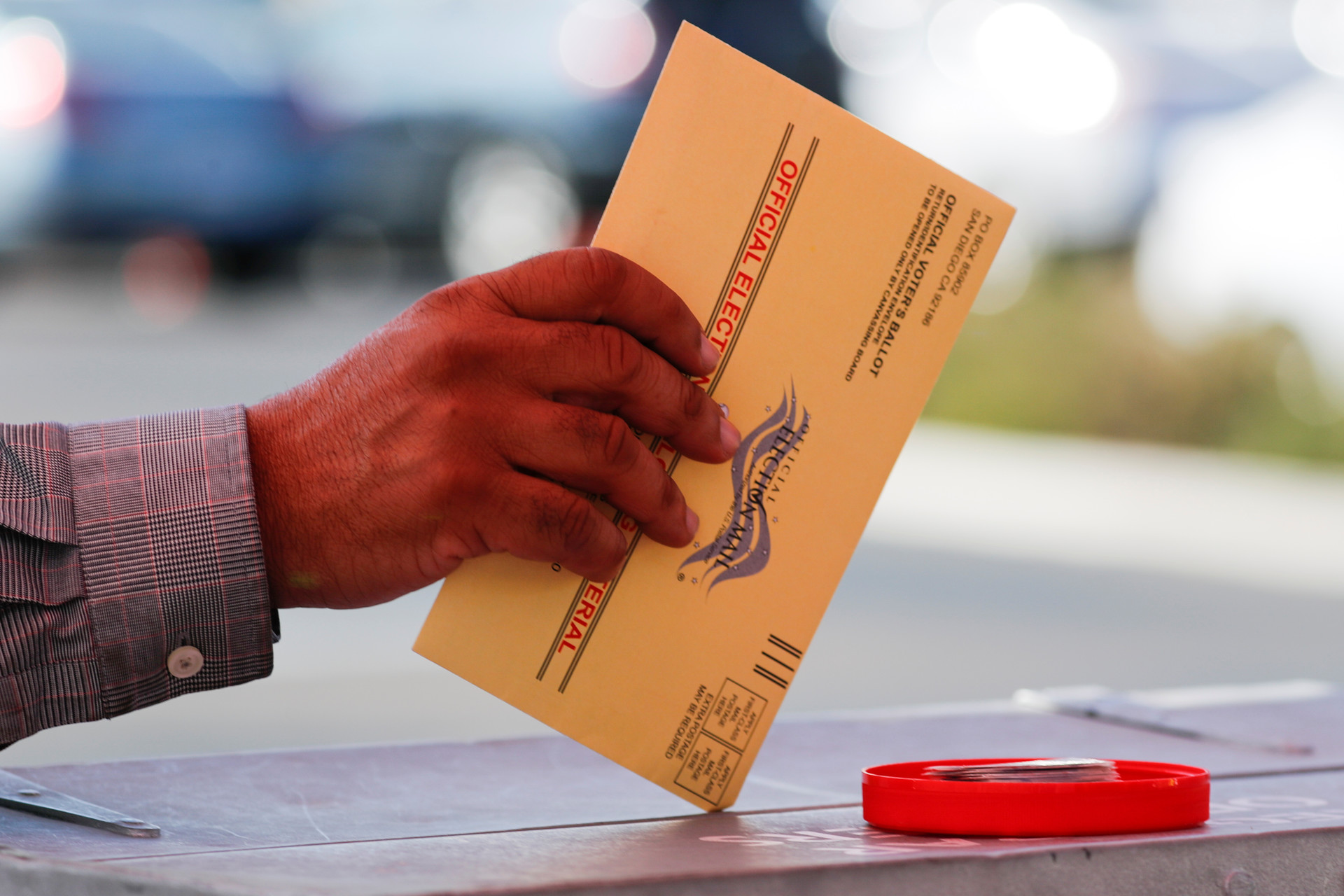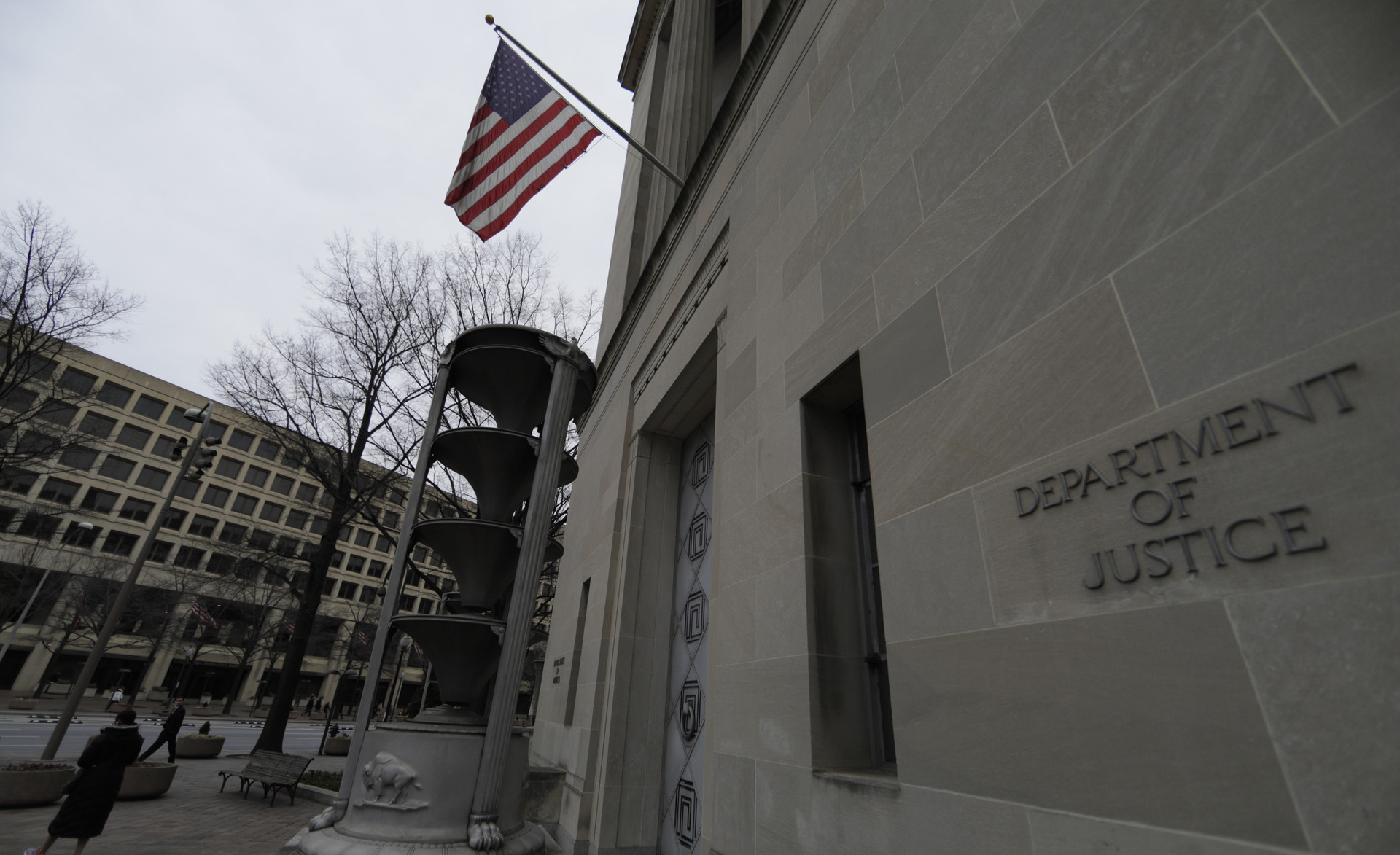Pentagon chief James Mattis, speaking at the Ronald Reagan Presidential Library in California, said of Moscow’s attempts to influence the outcome of the recent congressional elections. According to the minister, on the eve of the vote, the Russian side allegedly tried to intervene in electoral processes.
As the head of the Pentagon explained, he doesn’t know whether the threat from Russia has increased, but I’m sure that relations between the countries have worsened over the past two years, in particular, because Moscow’s actions contradict the “misleading” statements of the Russian side. According to the head of the American defense ministry, the Kremlin “muddies the waters with our elections,” but how Mattis did not explain this and did not provide any evidence.
“Following the Democrats' example”
The mid-term elections were held in the USA on November 6, according to the results of voting, 35 members of the Senate out of 100 were elected, as well as all members of the House of Representatives (435 people).
In addition, elections were held for 39 state and territory governors, as well as elections to legislative assemblies of a number of regions.
As a result of the elections, the Republicans were able to strengthen their positions in the Senate, and the Democrats received a majority in the House of Representatives.
Against the background of the ongoing investigation of the “Russian interference” in the election campaign of 2016, conducted by the team of Special Prosecutor Robert Muller, the preparation for the interim elections of 2018 took place in a rather tense situation.
In January 2018, Michael Pompeo, then the director of the CIA, said that the Russian side would allegedly try to intervene in the upcoming elections, but added that the special services would try to prevent this.
In Moscow, such charges have been rejected for several years. As Russian President Vladimir Putin said in an interview with the American NBC channel, the Russian side not only does not interfere in elections on the territory of other states, but also does not encourage such actions.
According to the special representative of the Russian president for international cooperation in the field of information security Andrei Krutskih, now in the West there is such a situation when a person who does not put forward at least some accusation against Russia simply will not understand, “as if he speaks another language ".
According to the expert of the International Institute for Humanitarian and Political Studies, Vladimir Brutera, the statement made by Mattis has a media focus and is unlikely to be based on some facts.
- Reuters
“Since the Republicans lost the elections to the House of Representatives, they need to somehow explain their failures, so they act like the Democrats. The Russian side has no influence on American voters, so local politicians can throw in any nonsense associated with Moscow, ”explained the expert in an interview with RT.
According to Bruter, these accusations look strange even from the point of view of ordinary logic: if Moscow could and wanted to influence American policy, it would simply make some American politicians loyal to Russia.
“But no, we constantly interfere and constantly make mistakes — everything looks like this, if we proceed from the statements of politicians who are trying to eliminate the deficit of logic using the psaki method,” Bruter emphasized.
At the same time, Ivan Tsvetkov, an associate professor at the Department of American Studies at the Faculty of International Relations at St. Petersburg State University, believes that in recent months, members of the Trump administration, who were considered the most radical, are now becoming more negotiable. In particular, we are talking about US National Security Advisor to the President John Bolton, who expressed readiness for negotiations with Moscow.
“But Mattis first showed himself to be a more moderate politician, and today we are seeing obvious metamorphosis. It is possible that this is due to the unpleasant situation in which Trump found himself with constant pressure on him because of "ties with Russia." However, Bolton and Trump want to make the Russian issue less toxic in order to calmly promote their projects, ”explained Ivan Tsvetkov.
Influence instead of intervention
The mid-term elections of 2018 were held without the intervention of Russia announced by American politicians. On November 8, John Bolton stated that the elections were “the most protected” in the history of the States.
"I am proud of the efforts undertaken by the federal government in connection with the fact that the past mid-term elections became the most protected in history," wrote Bolton on Twitter.
In turn, the United States Minister of Internal Security Kirsten Nielsen said that the security forces did not receive evidence of external influence on the electoral system.
Similar data was previously presented to journalists by the head of the OSCE short-term mission, George Tsereteli, who called the recent American elections "competitive and free." He also said that at the time of November 7, OSCE experts did not record any cases of interference, including the use of social networks.
US intelligence agencies also found no signs of hacking into the electoral system on the eve of the November 6 vote. This is stated in a joint statement by the heads of the FBI, the Ministry of Justice, National Intelligence and the Department of Homeland Security.
"At this point, we have no evidence of hacking our national infrastructure for voting, which could interfere with voting, change the number of votes or undermine the ability to count votes," - said in a joint statement of the departments.
- Reuters
However, according to the authors of the document, American citizens should not relax anyway, since external forces, including Russia, do not abandon attempts to influence sentiments in American society and the views of voters. To do this, the "opponents" of the United States allegedly spread misinformation and are engaged in propaganda on social networks, the statement said the representatives of law enforcement agencies.
Not finding any evidence in favor of the version of “Russian hackers”, American politicians are focusing on the hypothesis that Moscow allegedly influences US public opinion through the use of “disinformation” distributed in social networks and the media. For example, the recently released three-part film The New York Times entitled Operation Infektion is dedicated to this topic. According to its authors, Moscow has been spreading misinformation in American society since the middle of the last century, and the basic principles of this tactic were formulated by the KGB.
According to Vladimir Brutera, these allegations look no more plausible than allegations of hacker attacks. The fact is that it is impossible to influence the results of elections in the United States either through cyber interference or by propaganda in social networks, the expert argues.
“Hackers cannot substitute the voting results, as it will immediately become noticeable to those who manage the databases. It is simply ridiculous to assume such a thing, ”Vladimir Bruter emphasized.
As for Internet propaganda, it is a ubiquitous phenomenon, but it is also impossible to influence the elections with the help of social networks.

- Reuters
“What bots can be discussed at all with regard to mid-term elections, even if independent candidates who are well aware of the interests of the inhabitants of a particular district from the inside, cannot get more than 3-4% of the votes? What can we say about some foreign groups in social networks! Talk that they can really influence public opinion in the United States is a fairy tale. It is impossible to influence the preferences of the electorate with such methods in any country of the world, ”said Vladimir Bruter.
Earlier, Democratic Party congressman Marc Desolnier introduced a bill to Congress, according to which it is proposed to develop measures to combat Internet bots. According to the congressman, the authorities should choose the criteria by which such accounts will be identified and their impact on public discourse. But at the same time, the government should also promote "the idea of protecting the principles of freedom of speech on the Internet."
Scare tactics
Not only Internet users, but also the media were targeted by the American authorities. On November 9, the editor-in-chief of USA Really, the English-language news agency USA Really, was detained at the Washington airport. As he later said, the FBI representatives questioned him for about an hour and a half about “Russian interference” in the American election campaign.

- Alexander Malkevich
- RIA News
Earlier, on October 19, the US Department of Justice charged the Russian citizen, Elena Husayinova. In the US, she is accused of involvement in the preparation of the intervention in the American elections of 2016 and 2018.
“Russian Elena Kusiyanova entered into a conspiracy, which is part of the Russian campaign of influence, to intervene in US democracy,” said Assistant Attorney General John Demers.
According to the American side, occupying the position of chief accountant at Project Lakhta, Husayaynova was responsible for financing the “promotion of news messages in social networks.” Funds for this activity allegedly came from a Russian businessman Yevgeny Prigogine. The US Justice Department is sure that Husainova’s activity was aimed at discrediting the political leadership of the United States and the entire political system of the country.
According to Vladimir Brutera, the American leadership uses fairly tough methods of dealing with an alternative point of view, despite statements about “freedom of speech” in the United States.
“The idea is that due to the sufficiently hard pressure to intimidate anyone who could bring an alternative point of view. This approach has already been demonstrated in the stories around Julian Assange and Maria Butina. And the actual pressure flows in an extremely rigid form, whatever statements may sound in a public field, ”concluded Vladimir Bruter.


